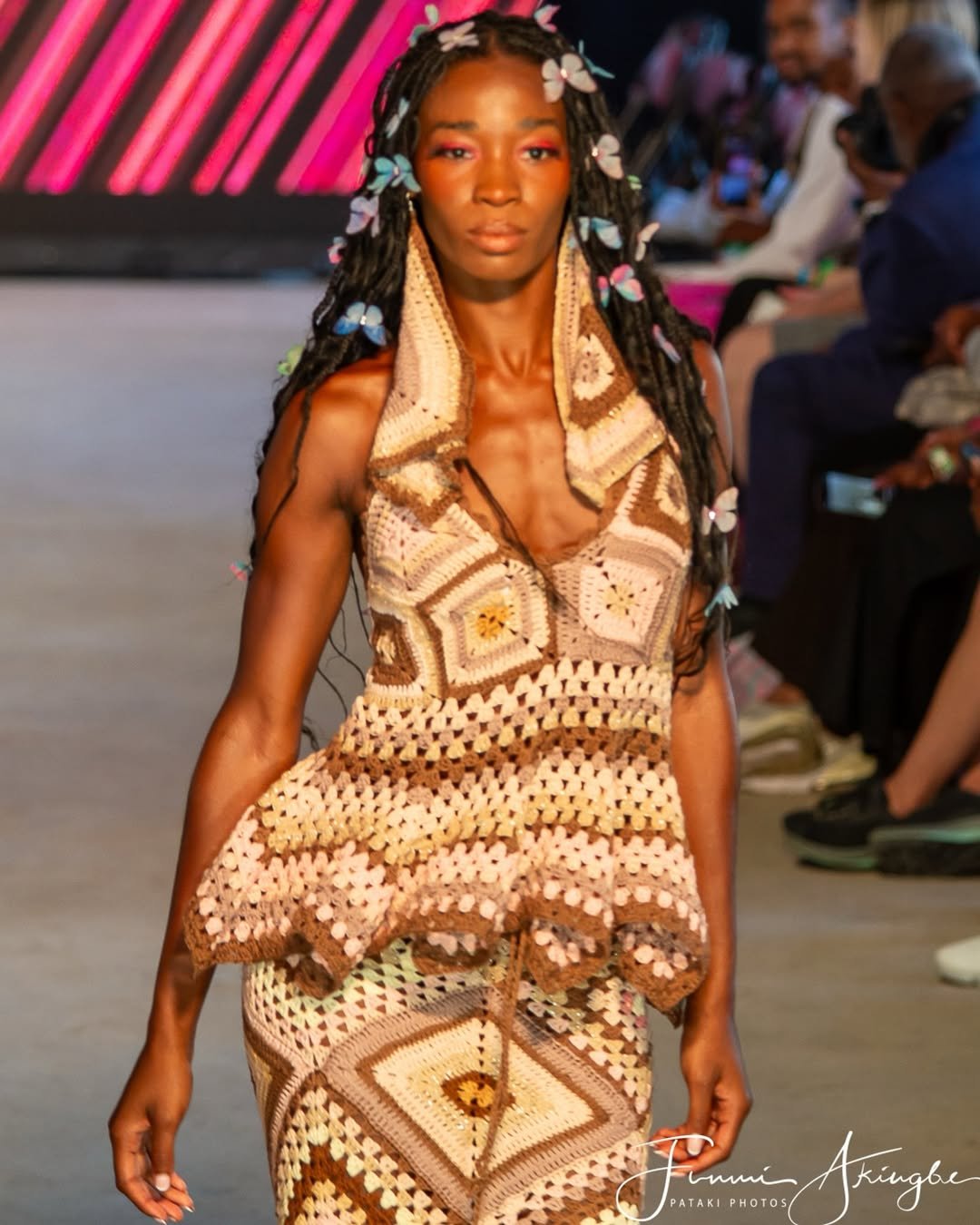Four Voices from Africa Fashion Week 2025
On the style, heritage and inspiration.
Africa Fashion Week London's annual catwalk and exhibition event is one of the world’s largest and longest-running showcases of African and African-inspired fashion & design.
2025 marks its 15th year, it has hosted almost 3000 emerging and established designers and exhibitors to 75,000 visitors, including buyers, retailers, industry professionals and global media. It celebrates the vibrant continent by spotlighting established and emerging designers through exhibition showcases and runway shows.
This August, attendees witnessed showstopping collections by designers who incorporated culture through traditional garment techniques and longstanding sustainable practices from the continent into their work. We took the opportunity to speak to the founders of Henri Uduku, MBW Fashion Addict, Makenzy Creations, and Sevaria, four designers using their brands to embody and preserve Africa’s cultural heritage through fashion.
Henri Uduku
British Nigerian designer Henri Uduku, founder of his namesake brand, came as one of ten delegates of the British Council Creative DNA initiative. “I tell better stories on the runway with pieces from different collections,” says Uduku. He used the runway at Africa Fashion Week 2025 to curate a collection that tells layered African stories using pieces from four previous collections. Guided by a deep commitment to sustainability, he repurposes leftover fabrics into anything from pockets to tote bags.
“Sustainability means consciousness. It means taking time to save yourself and save your surroundings,” says Uduku. “It means showing love not just to yourself, but to everyone around you because no man is an island, and everyone should be their brother's keeper.”
Alongside sustainability, the brand also champions African fashion and believes it is the future of fashion. “Africa is here already. Everybody wants a piece, takes a piece, holds a piece of Africa. It’s right here; I don’t think it’s any further.”
MBW Fashion Addict
With their OMOLARA collection, MBW Fashion Addict redefines heritage wear for the modern woman. The collection is named after and inspired by the designer’s mother, who was a seamstress. “She’s an amazing woman, she’s strong, she’s confident, she’s bold, but very delicate,” says Temiloluwa Fagbemi, founder of MBW Fashion Addict. These words are woven into the collection using the traditional Yoruba Asa-Oke fabric with hand-knitted yarns to allow her customers to feel confident in her traditional wear. Even the colour scheme is a reflection of her mother’s style, with green and purple meshing together in colliding prints.
“I love colours, I love print, and that’s what this collection is all about,” says Fagbemi.
MBW Fashion Addict works to champion Nigerian craftsmanship by working directly with local women to promote and preserve cultural heritage. “I just want to celebrate women,” says Fagbemi. “It’s about making sure that everybody is included and represented.”
Makenzy Creations
From the Ivory Coast to Algeria and Morocco, Makenzy Creations stitches African stories into every crochet top and macramé knot. “I love to take cultures and weave that into crochet,” says founder Mankemin Diomandé-Hübler, who learnt the skill from her mother. “My pieces are long-lasting; they are not for two years and then thrown away,” says Diomandé-Hübler. The brand specialises in dresses, accessories, and decoration, with a focus on slow fashion by hand-making each design to avoid overproduction.
Sevaria
Based in Nairobi, Sevaria explores the cross-section between menswear, womenswear, and tailoring to create unisex pieces with a focus on texture, structure, and storytelling. The current collection, SAFARINI, inspired by a Tanzanian safari visit, interprets the experience through an African lens. “The way we do things, the way we style, the way we dress, comes very naturally to us,” says Jamie Kimani, founder of Sevaria. He likes to test androgynous looks in his designs, proving that African fashion can be both rooted in tradition and forward-looking.
“When you talk about innovation, it’s things we’ve been doing. It’s heritage, it’s culture; there are a lot of stories, there’s a lot of reasoning behind every piece we wear. So we are more intentional, and that’s the future of fashion.”
Across these five designers, a fierce pride in African culture and traditional techniques shines through. It is refreshing to see the conscious effort to preserve heritage while innovating for the modern world. Each brand exists in a healthy ecosystem, connecting with their communities and using their talents to be seen, heard, and celebrated. This is what Africa Fashion Week is all about, so be sure to check out the other designers that show cased as we look forward to next year.





